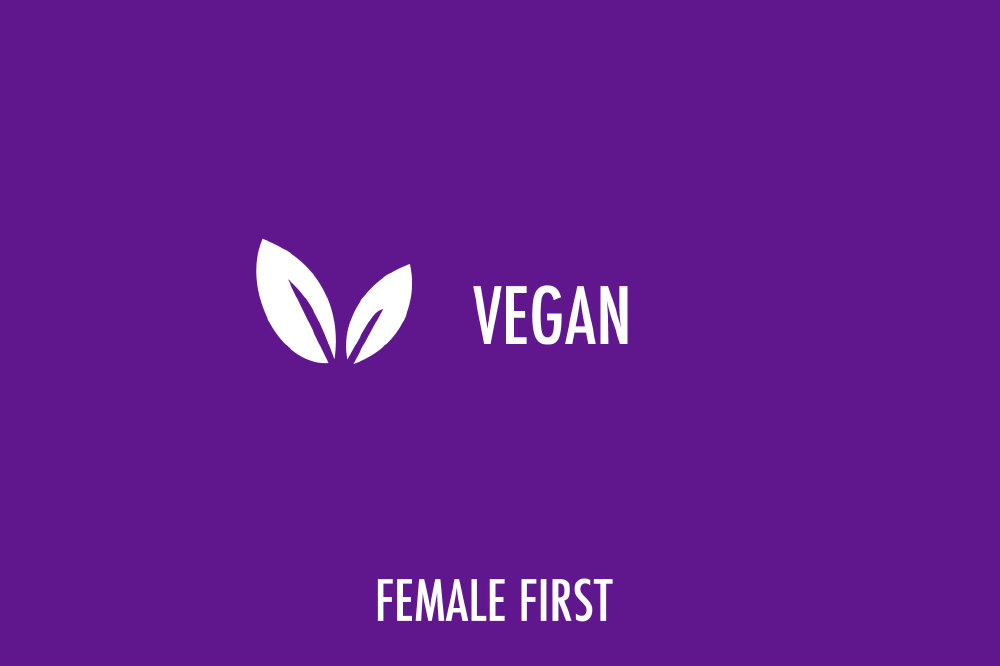Living off the fat of the land used to mean having the very best of everything. Yet today, it is sometimes difficult to remember just how all pervasive the anti-fat movement of the last 30-40 years has become. To experience it visually, just look at the range of 'fat-free' or 'naturally low-fat' yogurts on display at your local supermarket, be they milk or soy based.

Vegan on Female First
The American scientist Wilbur Olin Atwater, inventor of the 'Calorie', discovered that the relative density of fat was a little more than twice that of protein and carbohydrate back in 1897. Twenty years later, the world's first diet-guru, Lulu Hunt Peters went on to connect calorie-counting with weight loss and her book, Diet & Health, was the very first weight-loss book to become a bestseller.
Although she was not especially anti-fat, calorie counting inevitably led her readers down the lower fat path. It simply brought the quickest reduction in total calories consumed.
Yet most people cite the influential American researcher Ancel Keys as the first to popularise a direct link between fat and something more serious, heart disease. He is infamous for examining the data from six European countries in the 1950's, yet disregarding countries like Spain and France where traditional diets are heavy in fat.
As such, his legacy is also the equally infamous "French paradox" although lower coronary heart disease is still found in 'fat-loving' France.
A growing fear of fat
Key's study prompted a widespread fear of fat, and led to the establishment of low-fat national dietary guidelines, which have since been rolled out to most countries.
Eating saturated fat in particular became shorthand for both 'clogging arteries' and raising cholesterol levels, so in searching for an alternative, food scientists discovered how to thicken vegetable seed oils.
These artificial trans-fats made from the likes of sunflower, soy and corn were 'hydrogenated' to make them solidify but they have since been shown to be genuinely harmful and their use has now been restricted - though not yet banned in the UK.
Why is fat especially important to vegans?
Along with meat and fish eaters, vegetarians and vegans have also been encouraged to adopt low-fat eating patterns. Many vegan guides and websites still tout the dietary benefits of eating less fat to reduce total cholesterol, even though much of the original research has been discredited.
Vegetarians can access cream and cheese, pescatarians can get essential dietary fat from fish like salmon and mackerel, but without those opportunities, vegans need clarity about their choices.
With modern day chronic illnesses such as depression and Alzheimer's on the rise, it is worth remembering that the human brain is composed of nearly 60% fat, and that without a steady supply of fats, your body does not work efficiently.
- Vitamins A, D, E, and K are only soluble in fat
- Fat helps transport nutrients and metabolites across cell membranes
- Fat helps maintain hormonal balance and a more effective immune system
- Your nervous system relies on axons coated in fat to fire electrical signals around the body
Those 'essential' Omega-3's
Two important types of dietary fat are called 'essential' because your body cannot produce them, nor store much of them.
Omega-3's reduce inflammation and are necessary for proper brain development. They help maintain a stable heart-beat, prevent arrhythmia and have a positive effect on blood pressure and blood clotting. Most easily found in fish and grass-fed animals, vegans can obtain them from rapeseed and flaxseed oil and from leafy vegetables and nuts (especially walnuts).
Omega-6's are also 'essential' yet people are generally more concerned about having too much since they form the main ingredient in most commercial seed oils.
Which salad and cooking oils?
Let's begin with coconut oil - containing a whopping 90% saturated fat. With butter at around 50%, and olive oil containing 14%, you might be scared off by that 90% figure!
Do not be. Although saturated fats can raise so-called "bad" LDL cholesterol, they also increase HDL ("good" cholesterol) and improve the ratio between the two which may well help against cancer. The lauric acid found in coconut oil also contains many anti-oxidants and anti-microbial factors.
Saturated fats like Coconut oil are stable, usually solid at room temperature and don't quickly go rancid. Vegetable oils left out in the light or cooked at a high temperature oxidise, but as your probably non-vegan great-Grandma knew, the 'saturated' dripping from her Sunday roast could be kept next to the stove and used for several weeks, just like coconut oil today.
I never use industrially-produced soy, corn and sunflower oils. There are simply too many mechanical and chemical processes involved in crushing oil from the seeds before purification and de-odourising. Even Omega-3 rich rapeseed oil should be cold pressed and pure.
- For tasty salads, drizzle with olive oil (extra-virgin if you can afford it), flavour with nut or avocado oil and add organic rapeseed or flaxseed for your preferred taste.
- When frying, don't let olive or coconut oil get hot enough to smoke. 180°C is hot enough whether you sauté onions, stir or deep-fry. A hand-held surface, laser thermometer now costs less than £20 for easy testing.
- When baking, organic coconut oil is a great alternative to margarine and butter.
In a nutshell; as a vegan, you are more likely to be health conscious and less likely to eat junk foods. That gives you a big advantage but just make sure there's enough healthy fat and oil in your diet. Your body will thank you.

* Sammy Pepys is a nutritionist and author of new health guide Fat is our Friend, available now priced £14.99 in paperback and £7.99 as a Kindle eBook. For more information visit www.fatisourfriend.com.
Tagged in Vegan

